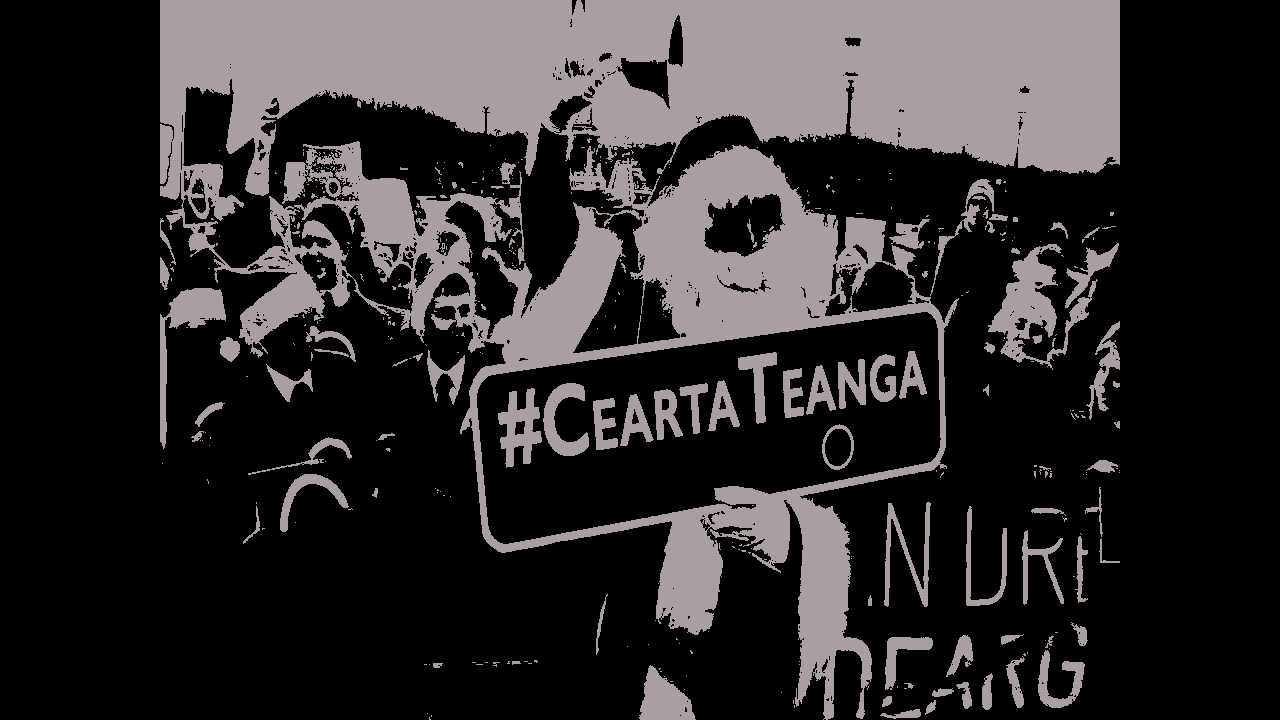An litir dhearg
Stay up to date! Receive a newsletter from us to keep up with the campaigns.

The fight for Irish language rights is something which has spanned across my entire lifetime – literally. When I was just 2 years old, the Good Friday Agreement made the first aspirational commitments to the Irish language, with a promise of “resolute action.”
But, 24 years later, little has changed; draft legislation published last year afforded a number of basic rights to Irish speakers, yet when we talk about the implementation of that exact legislation, it’s described as a ‘concession.’
Gaeilgeoirí in the north have long been ‘red with anger’ but they too have experienced the wrath of the green-eyed monster when constantly having to justify their need for language rights whilst their Gaelic cousins in Wales, Scotland, and even their Irish-speaking counterparts in the south enjoy those very rights.
Opposition to affording language rights to the Irish language community is, sadly, unsurprising but more often than not, it is based on falsehoods, myths or rooted in blatant sectarianism. But why?
I was fortunate enough to attend the inspiring launch of An Cumann Gaelach QUB’s report regarding the potential of an Irish language residential scheme; during which I was introduced to what was coined ‘cultural cowardice’ by an Droichead’s Pól Deeds. Pól spoke about the idea of institutions and public bodies,
“…creating fictional opposition to the Irish language in order to avoid any potential real opposition which may not…materialise.”
This really got me thinking; how many times have we, as a community, had been subjected to cultural cowardice? The answer? Too many.
Language visibility is not the problem here; the problem is that oppositional arguments which are often rooted in blatant sectarianism, are given the same, if not, more credibility than the well-researched, best-practice arguments in favour.
When we request basic services or resources, we are denied because ‘if we do it for you, we’ll have to provide it in Ulster Scots.’
This is simply not true; if there is no demand for those services coming from within that community, why is our right to access them in our language held to ransom?
Bilingual (Irish & English) signage is banned in our third level institutions because it may be viewed by some as ‘offensive, intimidatory or provocative.’
Bilingual signage also cannot be erected in all of our city-wide leisure centres because it may have an ‘adverse impact’ on those individuals who do not welcome them.
Language visibility is not the problem here; the problem is that oppositional arguments which are often rooted in blatant sectarianism, are given the same, if not, more credibility than the well-researched, best-practice arguments in favour.
If someone has a problem with Irish on signage, the Irish on the signage isn’t the problem. No right exists, be it in international or domestic law, not to see a language.
We can’t afford basic rights to Irish speakers because the National Health Service is on it’s knees… or because it’s too costly… or because it would lead to Irish being forced on us… or because you would have to speak Irish to get a job… or because there’s no demand for it. Sound familiar?
We are too often having to be reminded that the Irish language belongs to everyone; as someone who has seen first-hand the immediate role that exposure to Irish can have in the promotion of tolerance and respect for the language, I can confidently say that this anti-Irish bigotry is not coming from within those communities.
Rather, it stems from the scare tactics of those same unionist voices who mock, deny and attempt to marginalise us. They, and all those institutions who have been guilty of cultural cowardice, are abdicating their responsibility to acknowledge and honour long-standing, unfulfilled commitments to the language.
Stay up to date! Receive a newsletter from us to keep up with the campaigns.